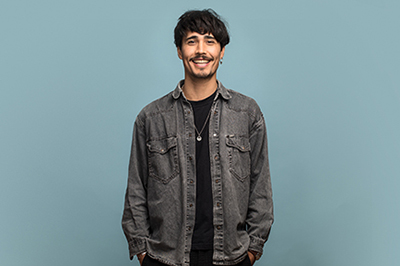Lightning fast implementation of alumnus´master´s thesis about smart charging of electric vehicles

Two years ago Jacob Dalton completed a master´s thesis proposing how household charging of electric vehicles can be used to stabilize the power grid. Now the KTH graduate’s idea has been introduced as a service by his employer, the Swedish-Norwegian electricity company Tibber.
This is the first time that residential electric vehicles (EVs) are being used on a commercial scale to provide primary frequency reserves, according to Lars Herre , an electric power technology researcher at KTH who supervised Dalton when he took his master´s exam in 2018.
Dalton’s thesis presented a theory of smart charging of electric vehicles (EVs), which could regulate the frequency – and thus balance the power supply – in the electrical grid. The work was done with the electricity company Tibber , where the Australian native was later employed to put the technology in practice.

“It´s not very often that people can write a concept in theory and then execute it. I’m incredibly grateful for Tibber in giving me the opportunity to do exactly that.
It´s been a wonderful journey,” Dalton says.
Shifting charging to later at night
Regulating the frequency is about balancing the supply and demand for power, something that will present a greater challenge as Sweden moves away from nuclear and fossil fuel generation.
Additionally, the country’s goal is to reduce transport sector emissions by 70 percent by 2030. Vattenfall (the Swedish government-owned multinational power company) expects that about one million EV´s would be needed to reach that goal. But the pressure on the grid would be unbearable if all of them were to charge at the same time in the evening.
Today, power utilities control the supply to keep balance in the power grid. This is relatively easy to do with hydro, nuclear and fossil fuel-based generation, which can be turned up and down. But the renewables that Sweden is increasingly relying on, such as wind and solar energy, cannot be controlled that way.
“Now that we´re losing this control over the supply, we instead have to control the demand. And that is exactly what we´re doing with the service we´re offering,” Dalton says.
In simple terms, the technical solution is about car batteries being charged when the frequency in the electricity grid is high – that is to say, when the electricity supply is high. When the frequency – and thus the supply – is low, the charging is turned off.
This concept for smart charging of EV’s fits like a glove for Tibber. The company is a new player in the Swedish, Norwegian and German electricity markets, helping their customers lower their electricity consumption and cost.
“By shifting the charging to, for example 11 p.m., when the electricity price is a lot cheaper, we can reduce the charging cost by 10 to 20 per cent,” Dalton says.
A piece in the puzzle for 100 per cent renewables
Dalton says that about 1,000 Tibber customers´ EVchargers in the middle of Sweden are currently being used at any one time in order to balance the electricity grid. But the more EV’s that are connected, the lower the charging cost will be.
“We turn them on and off in an optimized and orchestrated way that helps to stabilize the grid. This is a key piece in the puzzle towards a 100 per cent renewable powered grid. If we´re ever going to get close to 100 per cent we absolutely need to do this: control flexible consumption,” Dalton says.
Before joining Tibber, Dalton worked for six months as a research engineer. With Herre and Lennart Söder , professor of electric power technology at KTH, Dalton wrote a research article, based on his master´s thesis. The article won the Best Paper Award at the research conference, PowerTech in Milano in 2019.
Dalton’s master´s programme, SELECT– Sustainable Energy Systems , is within EIT InnoEnergy , an EU consortium for sustainable energy with KTH as a premiere partner. The Australian native began his studies at Universitat Politècnica de Catalunya BarcelonaTech. The second year he had a choice between Instituto Superior Técnico in Lisbon, Eindhoven University of Technology in the Netherlands and Aalto University in Finland.
“KTH’s ranking position and reputation was crucial for my decision. It is the number one university in InnoEnergy. At least when it comes to my programme,” Dalton says.
Håkan Soold